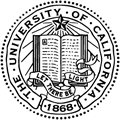
The fellowship programs at Bard Graduate Center are designed to further the institution’s goal of promoting research in the areas of decorative arts, design history, and material culture—what we call the “cultural history of the material world.” We offer a number of fellowship opportunities for researchers working in these and allied areas. We are currently accepting applications for two types of fellowships, see below for details. For questions, please contact fellowships@bgc.bard.edu.
Research Fellowships
Bard Graduate Center invites scholars from university, museum, and independent backgrounds with a PhD or equivalent professional experience to apply for funded research fellowships, to be held during the 2019–20 academic year. The theme for this period is “Whose story?” Applicants are asked to address in a cover letter how their projected work will bear on this question. The fellowships are intended to fund collections-based research at Bard Graduate Center or elsewhere in New York, as well as writing or reading projects in which being part of our dynamic research environment is intellectually valuable. Eligible disciplines and fields of study include—but are not limited to—art history, architecture and design history, economic and cultural history, history of technology, philosophy, anthropology, and archaeology. Applications due November 1, 2018.
Learn More Here
Visiting Fellowships
Bard Graduate Center invites scholars from university, museum, and independent backgrounds with a PhD or equivalent professional experience to apply for non-stipendiary visiting fellowships, to be held during the 2019–20 academic year. The theme for this period is “Whose story?” Applicants are asked to address in a cover letter how their projected work will bear on this question. Bard Graduate Center Visiting Fellowships, which are intended for scholars who have already secured means of funding, provide scholars with workspace in the Bard Graduate Center Research Center and enable them to be a part of our dynamic scholarly community in New York City. Eligible disciplines and fields of study include—but are not limited to—art history, architecture and design history, economic and cultural history, history of technology, philosophy, anthropology, and archaeology. Visiting Fellowships may be awarded for anywhere from one month to the full academic year. Applications due February 1, 2019.
Learn More Here









